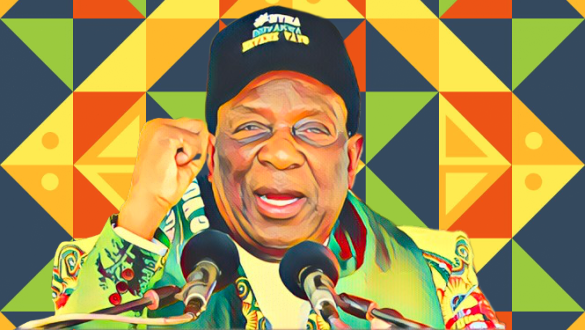Zimbabwe’s President Emmerson Mnangagwa has announced that his government will allocate more resources to support devolution projects that aim to improve the quality of infrastructure and services for rural communities. The president made the announcement at the 20th annual National People’s Conference of his ruling party, Zanu PF, held in Gweru over the weekend.
Devolution is a policy that allows local authorities to decide on their own development priorities and receive funds from the central government to implement them. The 2013 constitution introduced the policy, and has been implemented by the Zanu PF government since 2018. According to the president, devolution has led to a marked transformation in the infrastructure landscape across districts, as evidenced by the construction of health facilities, schools, roads, boreholes, and irrigation schemes.
The president said that rural areas will be prioritized in terms of funding from devolution and other related funds, in line with the mantra of leaving no place and no one behind. He also said that rural industrialization will be accelerated by harnessing the comparative advantages of each district and promoting value addition and diversification of agricultural produce. He added that devolution was also a way of repaying the public for supporting the liberation struggle against colonial rule.
The president’s announcement comes at a time when Zimbabwe is experiencing a moderate economic recovery, with growth projected at 5.3% in 2023, according to the World Bank. The recovery is driven by a strong performance in agriculture, mining, and services sectors, improved electricity supply, and macroeconomic stability. The country has also received $960 million in additional Special Drawing Rights from the International Monetary Fund, which has boosted its foreign currency reserves.
However, the country still faces challenges, such as high inflation, exchange rate volatility, debt arrears, poverty, and inequality. The president acknowledged these challenges and urged his party members to work hard to deliver on their promises to the people. He also called for unity and peace among Zimbabweans and reiterated his commitment to dialogue with all stakeholders.
The president’s speech was well received by the delegates and observers at the conference, who applauded his vision and leadership. The conference also endorsed the party’s constitution and resolutions on various issues affecting the country. The conference was held under the theme “Towards Vision 2030 through Devolution, Industrialisation and Modernisation”, which reflects the party’s aspiration to transform Zimbabwe into an upper middle-income economy by 2030.
Source: The Herald


